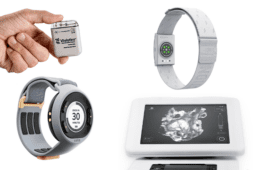Scientists at the University of the West of England (UWE Bristol) have discovered a new way of making titanium implants bond better with bones. Successful implant surgery is dependent on this bonding process working so that the implant integrates into the patient’s skeleton.
The Scientists, led by Dr. Jason Mansell from UWE Bristol, have found that they can coat titanium implants used in surgery with a bioactive lipid called lysophosphatidic acid (LPA). The LPA was discovered by the team to interact with Vitamin D to enhance bone forming cell function, an event that helps strengthen the bonding properties of implants to bone.
As around 10% of joint replacements fail due to loosening of the bonding of implant to bones the team believes that this research funded by NIHR will mark a breakthrough in orthopedics, saving patients who require implants the significant trauma of repeat surgery if their implants fail to bond as well as big savings to NHS orthopedic budgets.
The team is working in partnership with top orthopedic consultant Professor Ashley Blom, a musculoskeletal expert and co-director of the Bristol Bones and Joints Health Integration Team (HIT) for the South West of England and a patient research advisory group. Dr. Mansell says, “Many implants used in surgery are made out of titanium. These include joint replacements, screws and plates for fixing broken bones and dental implants.
“Implants work well when the patient’s own bone joins onto the titanium using the body’s own natural healing processes. When this join forms properly it is extremely strong, however in some cases (around 10%) the patient’s bone fails to join strongly to the titanium and therefore the prosthesis works loose and ultimately fails.
“When this happens it is traumatic for the patient, who may need further complicated surgery, and expensive for the NHS. Typically, a hip replacement implant costs between £1k and £3k and this is before we factor in hospital care, surgery, physiotherapy and pain management costings.”
The scientists believe that if the LPA coating reduces the need for repeat surgery in the future the savings per annum to the NHS could be in the millions.
Dr. Mansell explains how LPA works: “Lysophosphatidic acid (LPA) is a naturally occurring fatty molecule that acts alongside vitamin D to promote bone forming cell function. This is a very exciting discovery as few agents are known to enhance the actions of Vitamin D on bone forming cells. Vitamin D is vital for bone health because it enhances bone forming cell function. Therefore, agents that can co-operate with vitamin D could find place as a coating on titanium to encourage better bonding to the patient’s bone.
“We have found a way of joining LPA onto titanium using a simple process at room temperature. Simple procedures to titanium modifications are appealing to the companies that manufacture bone implants to keep costs to a minimum. We have found that our LPA-modified titanium works with vitamin D to support bone cell function.
“Recently we also discovered that our novel coating also deterred the attachment of bacteria, this is particularly exciting as it means we have a potential dual-action titanium implant material.”
The team has also found that the coated titanium is resilient to washing and sterilization, procedures required before implants can be placed into the body. Dr. Mansell continues, “Surgeons need to be able to use tools to engineer the implants into position so the coating needs to stay attached whilst the prosthesis is correctly aligned.”
The work to date has received funding from the National Institute for Health Research (NIHR) the research arm of the NHS and Orthopaedic Research UK. The next stage of the project which is currently seeking further funding will examine how robust and stable the coatings are as they need to withstand the rigors of storage, sterilization and the physical forces they will experience when implanted into the body.
Case Study – Lizzy Betts
Lizzy Betts has had three knee replacement operations in as many years and she joined the team to help the researchers develop their work. More and more research now happens in close consultation with patient research advisory groups who are able to give valuable insights into the impact of treatments.
Lizzy, aged 73, said, “I think this work is wonderful and although I am unlikely to benefit I am keen to assist as much as I can from the patient perspective. My father was a surgeon and I also trained and worked as a nurse and I have seen first-hand how research fundamentally informs progress in health treatment.
“I had my first knee replacement on my right knee three years ago and the first procedure went very well. I did the exercises and I can say that the treatment absolutely worked. However when I needed a second operation on my left knee it was not straight forward. The tibia had subsided and the pin didn’t hold. After a lot of pain and terribly restricted movement it was decided that I should undergo surgery a second time. I now have a new hinged knee implant and the surgeon has repaired the top of the tibia and encased it in more metal; this does seem to be taking well so far but I cannot begin to underestimate the trauma of having to go through the same procedure twice over. The second operation seems to have worked well and now I am able to drive again which is wonderful but it would have been hugely preferable not to have had to undergo surgery for the same treatment twice.
“If this new coating for titanium plates that the team is developing succeeds in progressing through medical tests it will revolutionize the lives of people like me who need to have hip or knee replacement surgery. Going through the process once is traumatic as it is but this breakthrough could mean that repetitive surgery becomes a thing of the past.”




